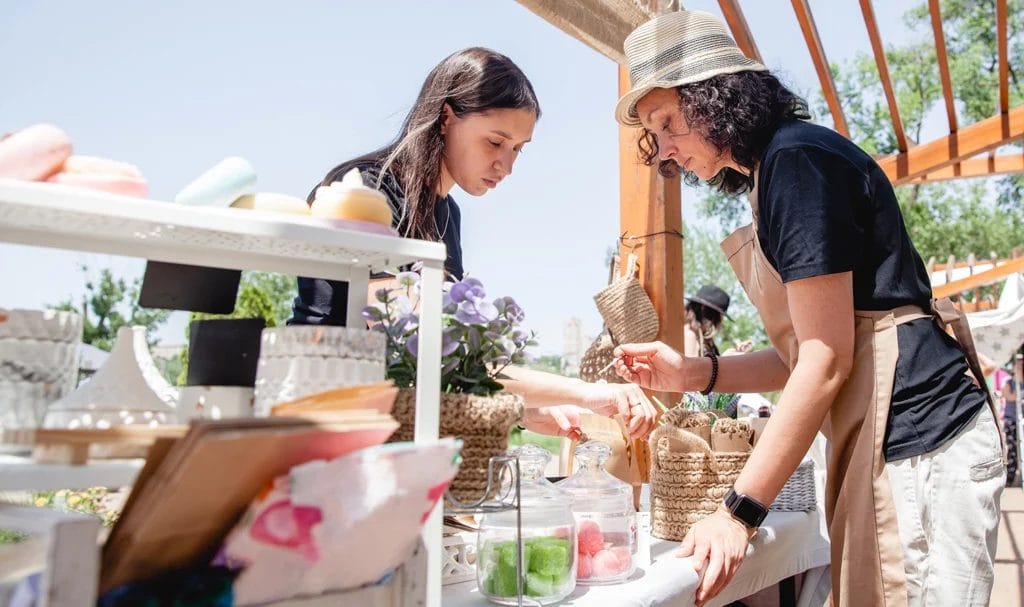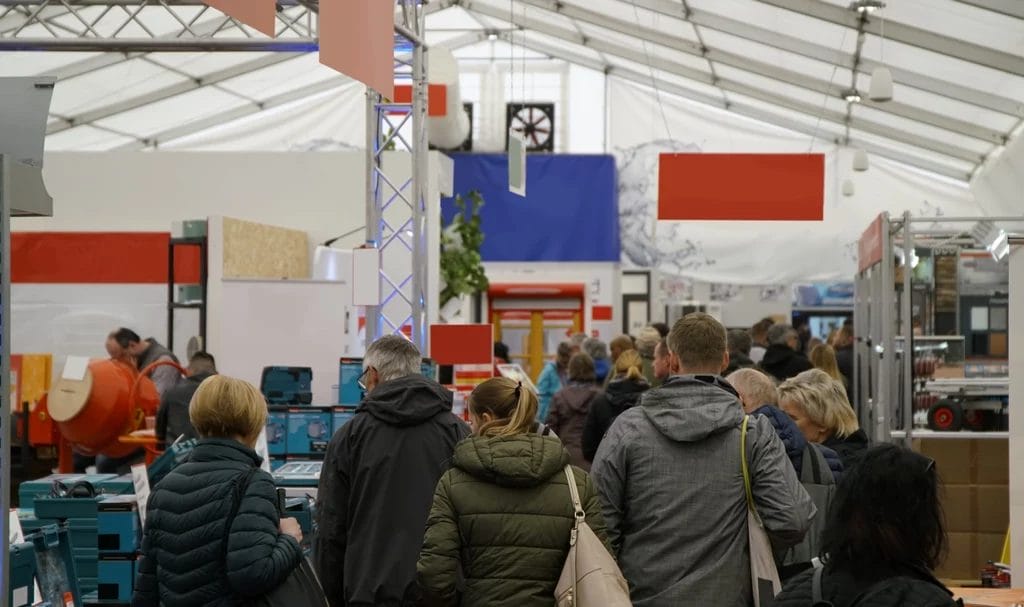Attending an event comes with a long list of requirements — permits, paperwork, and now, insurance.
It can seem like a lot, but liability insurance works differently than other types of insurance you may already be familiar with. It’s there to protect you and is something every vendor benefits from having.
Let’s explore why you need it and get you the right coverage for your next event!
Why Insurance is Crucial for Venues and Event Organizers
Venues and event organizers require you to get insurance so they can keep you, your customers, other vendors, and the event safe.
All types of vendors face risks at events, such as unexpected weather or injuries. If something goes wrong, someone has to be prepared to pay for the incident, whether it be medical bills, repairs, or legal fees. The question is, will it be you? The venue? The event?
Think of insurance as a safety net. Event organizers want to ensure their events run smoothly, and part of that means protecting everyone involved, especially their attendees.
An attendee accidentally trips and falls because of a booth’s display
⬇️
The attendee breaks their hip and requires emergency surgery
⬇️
The attendee sues the vendor, the venue, and the event organizer over the incident, wanting their medical bills and lost wages covered
⬇️
The vendor’s liability insurance helps cover the cost of legal fees, lost wages, and medical expenses, protecting all named parties for the claim
Insurance helps venues and event organizers manage risks and gives them confidence that the event on their property is fully covered. Everyone benefits from this kind of protection!
It’s not about making things harder for you; it’s about ensuring that you’re all safe and secure and that you can focus on doing your best work without fear of the unexpected.

Do Most Venues Require Vendors to Have Insurance?
It’s becoming more common for venues to require vendors to have insurance. Requiring insurance helps ensure everyone has a backup plan in case of liability claims.
Not every venue has insurance requirements, but many larger events, conventions, and even pop-up markets will ask for a Certificate of Insurance (COI). Insurance is not just about covering property damage or accidents — it helps keep the whole event running without worrying about the “what ifs.”
So, yes, in many cases (especially when you’re dealing with big events), venues will ask you to provide proof of coverage before you can even set up. This may sound intimidating at first, but it’s a pretty simple process, I promise!
Planning an Event? Make COIs a Breeze!
We make it easy for you to offer quick coverage to vendors, protect your venue, and manage certificates all in one place, at no cost to you.

4 Key Benefits of Insurance for Venues and Vendors
Insurance is more than a line item on your vendor to-do list. It’s also an excellent way to protect your business, products, and reputation.
⭐ Financial protection: Liability insurance covers common event claims like slips and falls, so you won’t have to pay out of pocket. This keeps your personal and business finances safe.
⭐ More opportunities: Say yes to more events! With the right coverage, your application stands out, making it easier for event organizers to choose you as a vendor.
⭐ Boosts confidence: Insurance shows you’re serious about your business. It tells event organizers, attendees, and potential clients that you’re a pro who’s ready for anything.
⭐ Peace of mind: Homeowners’ insurance typically won’t issue short-term coverage for vendors. Having the right policy means you can breathe easy knowing you’re covered!

What Type of Insurance is Required by Venues?
It’s crucial to know precisely what the event or venue requires so you’re prepared. You don’t want to be caught off guard with the wrong coverage! Fortunately, most event organizers are happy to list exactly what types of insurance coverage you need.
✔️ General Liability Insurance
This is the most common insurance requirement from venues. It covers most injuries and damages that could occur during the event, such as someone tripping over your setup or an accident involving your products.
✔️ Product Liability Insurance
If you’re selling goods, product liability insurance may be required by some venues. It protects you if your products cause injury or damage to a customer. This is especially important for vendors selling consumables or items that could pose a risk.
✔️ Additional Insureds
Many venues and events will ask to be added as an additional insured on your policy. This makes them a co-insured party, providing them with protection in case you cause an accident at the event.
✔️ Theft and Damage Coverage (Inland Marine)
Worried about your booth setup, tools, or inventory getting damaged or stolen? While it isn’t always required, this optional coverage can protect your gear while you’re at an event.

How to Get the Right Insurance Before the Event
The good news is, getting the right coverage is often simpler than it sounds. Here’s how to make sure you’re covered:
- Ask the event organizer: Check with the event organizer or venue to learn what types of vendor insurance you need and if there are any specific requirements, like minimum coverage limits
- Shop for short-term coverage: Our vendor insurance typically lasts for 1–90 days, making it affordable, flexible, and free of a long-term commitment
- Buy a policy from Insurance Canopy: Our vendor policies come with the standard coverage most venues require, making it easy to buy an instant, event-approved policy online in minutes
- Get it early: Give yourself plenty of time to secure the right coverage for your business and get proof of insurance sent to the event organizer
Get Vendor Insurance Instantly
Policies start at just $49/event!
FAQs About Venue and Event Insurance Requirements
What Are the Legal Implications of Not Having Vendor Insurance?
The legal implications of not having vendor insurance include:
- Breach of vendor contract for not obtaining insurance
- Fines for not carrying the required coverage
- Denied entry into the event for failing to comply with requirements
- Personal responsibility for lawsuits, injury claims, and repairs
Without coverage, your personal assets (like your home or savings) could be at risk if someone sues you. Even baseless legal claims can cost you time, money, and hurt your reputation.
If you fail to get insurance when an event or venue requires it, you may face fines or repercussions from the staff.
How Much Does Vendor Insurance Usually Cost?
Vendor insurance usually costs $49/event. This can vary based on the length of the event, the type of insurance you need, and the work you’ll be performing at the event.
How Fast Can I Get Proof of Insurance (COI)?
You can get proof of insurance instantly after completing an online purchase for vendor insurance. It takes 10 minutes or less to buy a policy, and you can immediately access your Certificate of Insurance (COI) and documents from your online account.
Do I Need Insurance if I'm Just Doing a Small Pop-Up Market?
Yes, you need insurance if you’re doing a small pop-up market. Regardless of how big or small the event is, you are still prone to risks, and can still be held liable for someone getting hurt or property damage you cause at the event.
What Should I Do if a Claim Happens During an Event?
If a claim happens during an event, you need to file and submit a claim through your online account as soon as possible. Follow these steps to quickly file online, anytime:
- Log in to your online account
- Locate the “Manage Policies” section
- Click on “File a Claim”
- Provide the necessary information
- Submit your claim





